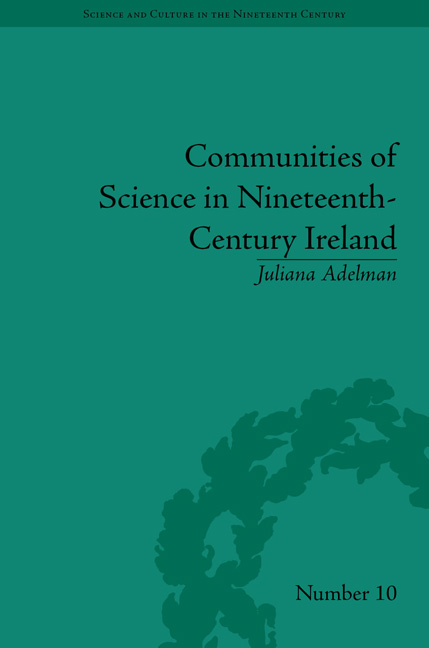Conclusion
Summary
May we all feel, and may we now be encouraged by the thought, that there is a fair field before us, and that we are fellow-travellers in the march of scientific progress, able and willing to help ourselves and to help each other.
Robert Lloyd PraegerThose who have studied the history of Irish science have generally agreed that scientific activity declined after the turn of the century and was conspicuously absent from the institutions of the Irish Free State. Various explanations have been offered, but they may be summarized as cultural aversion (especially on the part of Catholics and nationalists), lack of economic development and educational disadvantage. Instead of offering credence to any of these theories I want to reject the assumption which I believe underlies the search for such causes. The focus on Irish scientific decline seems to me to imply that Ireland deviated from the expected path. Such narratives can easily become ‘what if ’ stories. Continuing to ask why Ireland failed to develop a scientific culture which was identical to that of her nearest neighbour assumes that it would have been better if she had done so. It is, of course, interesting that Ireland's scientific research tradition during the nineteenth century was dominated by a Protestant Ascendancy and this fact may be explained by some combination of the theories listed above. This book has sought to describe how science actually developed in a variety of sites within Ireland, how science intersected with social, cultural, religious and political communities and to ask what these developments can tell us about the history of science during the nineteenth century. Ireland's relationship with science was and is unique, affected by its specific socio-political context, its relationship with its neighbours (near and far) and international scientific developments.
In reflecting upon what Ireland can tell us about nineteenth-century science, comparisons with Britain are essential. Britain was Ireland's rival and its ruler.
- Type
- Chapter
- Information
- Communities of Science in Nineteenth-Century Ireland , pp. 161 - 170Publisher: Pickering & ChattoFirst published in: 2014



